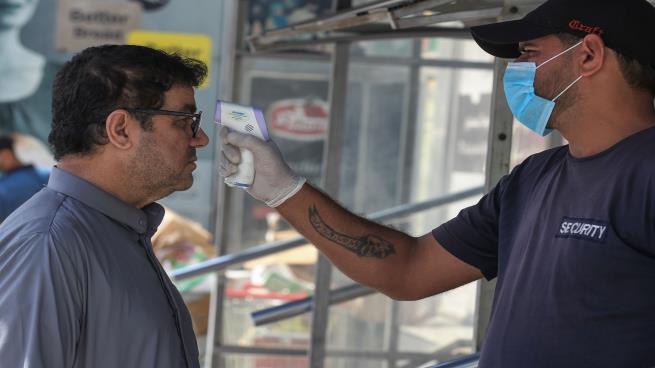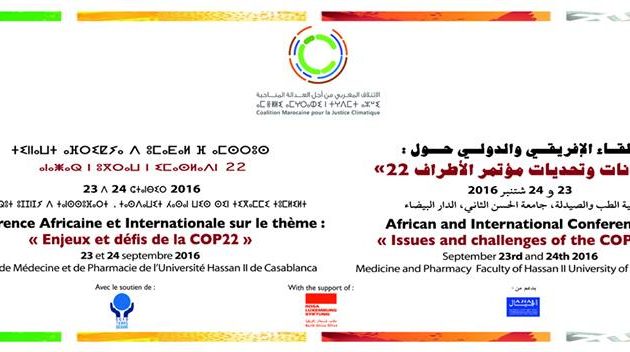Iraq: An Exhausted Healthcare Sector Needs a Brighter Horizon
On World Health Day
World Health Day is a global health awareness day celebrated every year on 7 April, under the sponsorship of the World Health Organization (WHO). This year’s theme is a tribute to health care givers.
This international day comes as the world fights the COVID-19 pandemic which has infected and killed people all over the world, and caused the shutdown of many cities. New rules requiring social distancing have put tremendous stress on the economies of many countries.
The COVID-19 pandemic has revealed that the health care systems in much of the world are not sufficient, and that policies of privatization and the cutting of governmental support for our most basic human needs must change; we are not prepared to lose still more people, human beings are the world’s most precious resource and should not be treated as disposable merchandise.
Iraq is one of the infected countries, and has suffered many casualties. This virus does not discriminate, everyone is endangered, and all need healthcare. The questions is: Do we have the capability and the adequate infrastructure to face and overcome this disaster?
According to the brief data on the MoH website, Iraq has only 281 public hospitals.[1] Referring to the “Health and Environmental Situation in Iraq” the MoH 2019 report stated that this is insufficient and needs enhancement and updating as many hospitals have been neglected over the past three decades and lack equipment and staff. Although the MoH endeavored to establish new health care facilities, low funding, corruption, and a precarious security situation always got in the way.
Lack of healthcare facilities raise the question as to whether there is an adequate healthcare system in Iraq to face the pandemic. Given that countries with highly developed healthcare sectors are themselves struggling trying to control the spread of the virus, this seems unlikely.
The highest percentage of ER admissions in the public hospitals have been due to respiratory sicknesses. In 2017, 1,158,691 cases of respiratory sicknesses were recorded all over Iraq, excluding the KRI. That alone should have been an indicator to the Iraqi government to be better prepared to deal with that kind of illness by providing better and more equipment and infrastructure. This year’s WHD theme reveals that Iraq is also lacking in that sector. According to the “Annual Statistic Report” of the MoH 2017, we have 64,297 nurses; but when referring to WHO standards WHO[2] that for every 10,000 people there should be 23 nurses. This means that we need more than 1,600,000 nurses to cover all of the Iraqi population. In addition to this, we need specialists, doctors and general healthcare givers.
The reason behind these shocking statistics is evident if one looks at the share of the national budget that is allocated to healcare. Both the ministries of Health and Environment were allocated 4.5% of 2019 budget, 6 trillion IQD.[3] This means 154 USD per person in Iraq. This is less than what was allocated for population in Iran (366USD/ person) and Jordan (257USD/ person).[4]
The MoH report about health and environment data in Iraq referred to the establishment of only one new hospital, and did not mention the reconstruction and expansion of another 14 hospitals as a result of a grant from an international foundation.
The health sector in Iraq requires clear plans and strategies for sustained development. Iraq already has all the needed financial and human resources, they just need to be invested without corruption or according to political quotas.
Our recommendation for the development of the healthcare sector is the following:
- Increase the allocations of the national budget to the healthcare sector, both investment and operating funds.
- Activate health insurance and increase its financial resources.
- Establish new hospitals using the grants provided to reconstruct Iraq.
- Develop healthcare education in accordance to the population growth and the country’s requirements.
- Provide more benefits to healthcare givers, and provide all materials and support necessary for their maximal performance.
- Review the MoH plans and strategies to detemine a way that they can rise above the minimum established by international standards.
- The Iraqi Parliament should perform its legislative and monitoring role in developing a thriving and robust healthcare sector.
We conclude this report by paying tribute to all the workers of the health care sector. They are doing their best to protect others, to help people get well and stay safe.
Information Center for Research and Development
7 April 2020
[1] “Health and Environmental Situation in Iraq” of the MoH 2019
[2] Please refer to the WHO website
[3] The report of MoH about the health and environment status in Iraq.
[4] Data of the IB.




